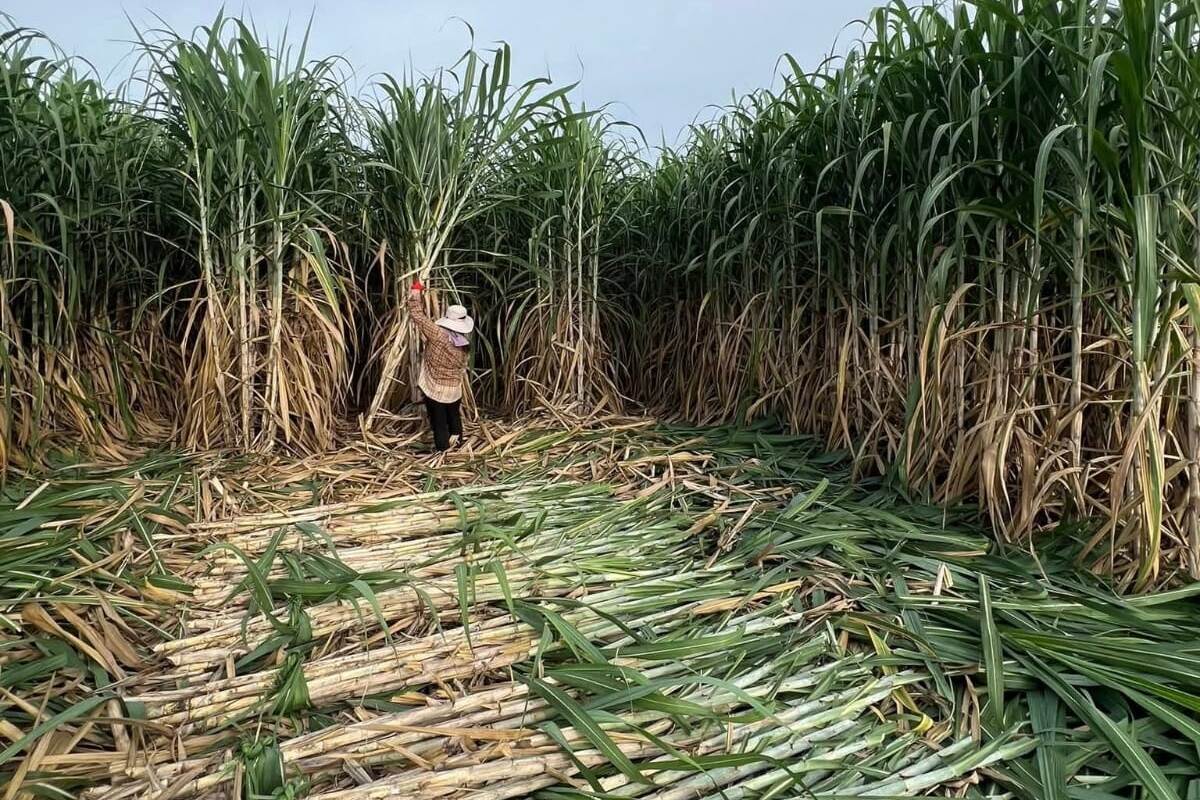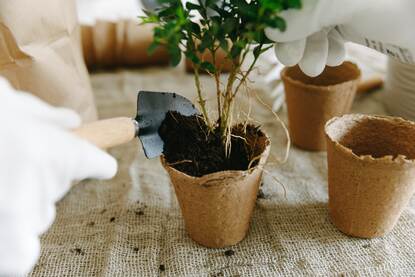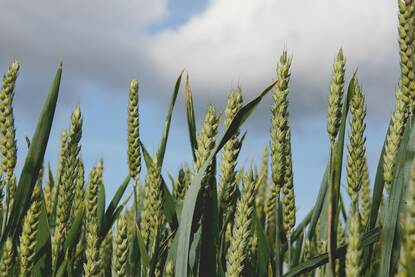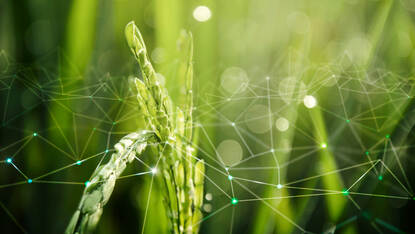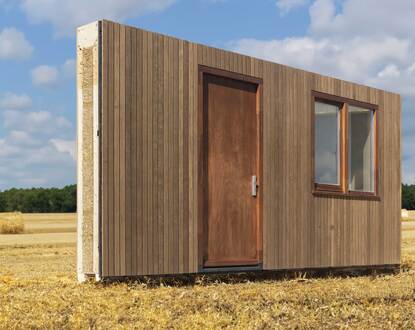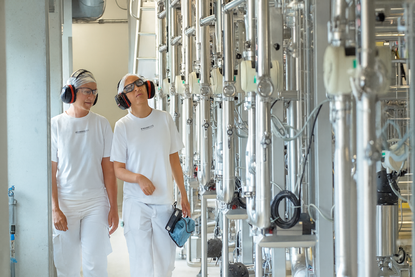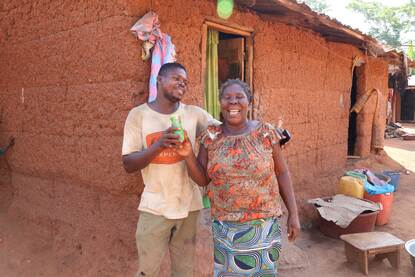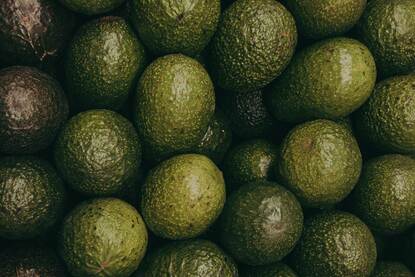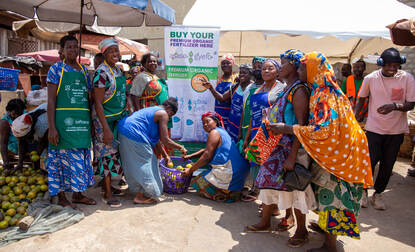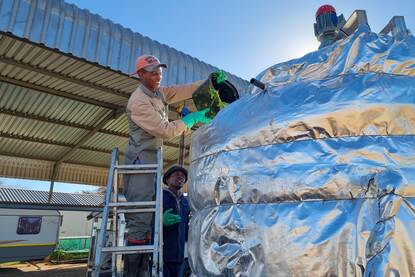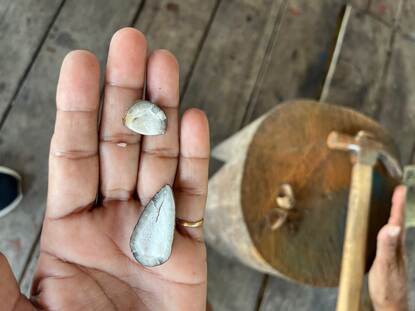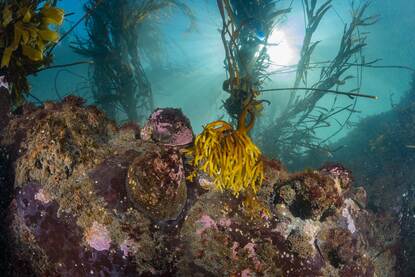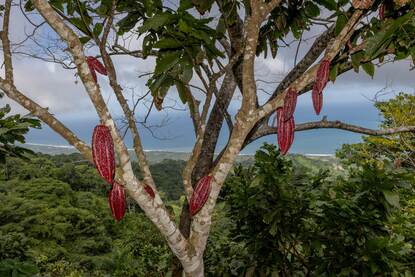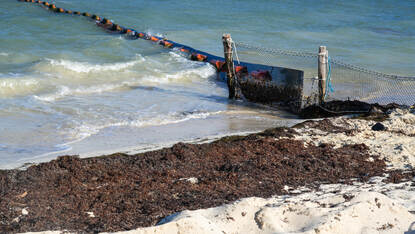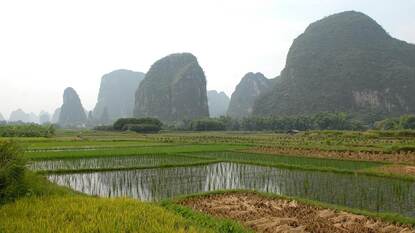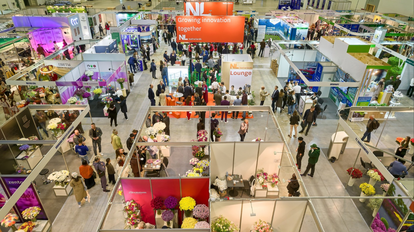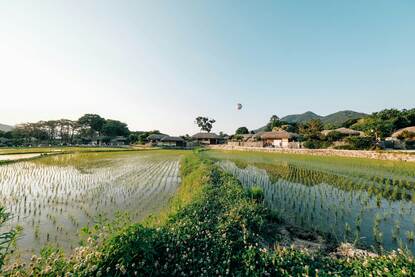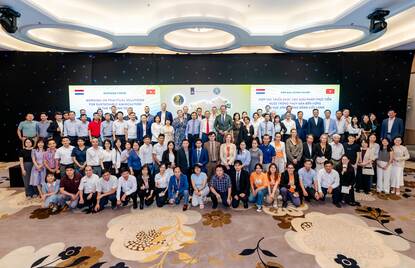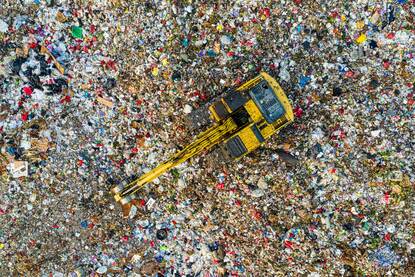Foto Source: Guan Jiwattayakul
By turning agricultural leftovers into useful products, Thailand is starting to reduce air pollution while creating new opportunities for farmers and businesses. Some Dutch partners, with experience in circular farming and bio-based innovation, are already involved in these efforts and can help scale them further.
Thailand faces a pressing environmental challenge. Each year from January to April, Bangkok, Chiang Mai, and other regions are blanketed by dangerous PM2.5 air pollution. PM2.5 stands for particulate matter smaller than 2.5 micrometers (µm) in diameter. A major cause is agricultural burning, where leftover crop residues are set on fire, releasing carbon and fine particulates that harm the environment and public health.
In early 2024, Thailand’s Department of Agricultural Extension (DOAE) estimated that around 48.6 million tons of crop residues from rice, maize, sugarcane, cassava, and fruit/perennial trees were generated between February to April. About 29.7 million tons (61%) were utilized, leaving 18.9 million tons potentially subject to open burning. Rice and sugarcane alone accounted for roughly 83% of the total burned residues.
During this period, hospitals reported sharp increases in respiratory illnesses and pollution-related diseases. As a result, agricultural burning is now considered both an environmental threat and a growing public health concern.
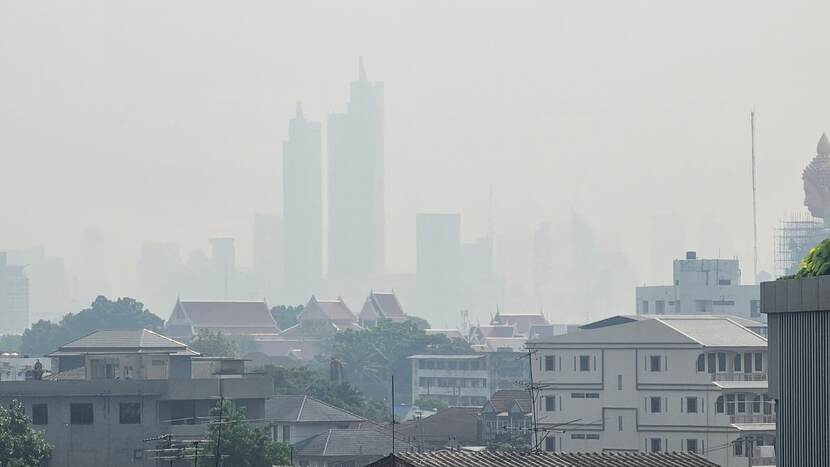
In response, more Thai stakeholders — including government agencies, research institutes, private companies, and community-led initiatives — are rethinking how agricultural waste can be managed. Increasingly, it is being seen not just as a problem but also as an economic opportunity.
Transforming residues into high-value bio-based products
While large-scale implementation is still limited, early initiatives across the country show the potential of transforming residues into high-value bio-based products. The Ministry of Agriculture and Cooperatives is now promoting a national waste-to-value approach, encouraging farmers to turn crop residues into useful products, such as biofertilizer, biomass fuel, and biochar. The aim is to reduce open burning, improve air quality, and create new income opportunities for farming communities.
To support this shift, the Thai government allocates budgets to relevant agencies in order to conduct applied research on agricultural waste utilization, particularly to address PM2.5 from open burning. One example is its support for BIOTEC (the National Center for Genetic Engineering and Biotechnology), a public research organization under the Ministry of Higher Education, Science, Research and Innovation. BIOTEC is developing technologies to convert crop residues into high-value bio-based products.
Meanwhile, the Thai Office of the Cane and Sugar Board (OCSB), in partnership with a Thai satellite operator (Thaicom), has developed the Burn Tracking Platform – an AI-powered tool that uses satellite imagery to monitor fire traces in sugarcane fields.
These early efforts show how Thailand is beginning to build a more circular and sustainable agricultural system. They also support the country’s broader climate goals of achieving carbon neutrality by 2030 and net zero by 2050.
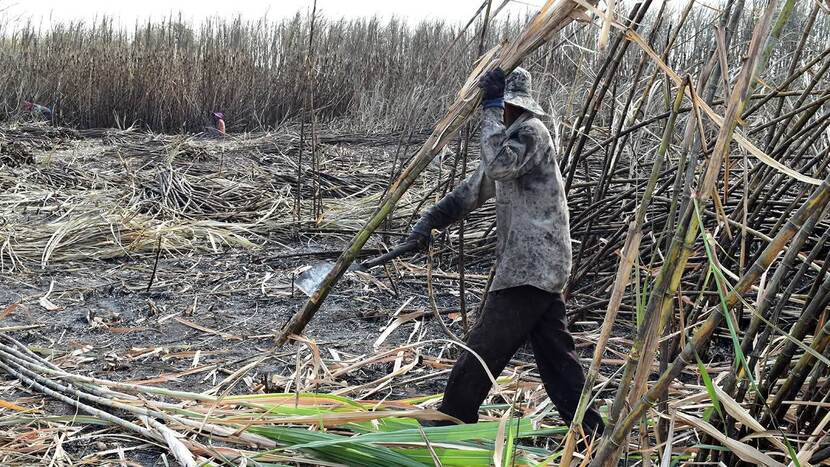
Thailand’s bio-based breakthroughs
Sugarcane leaves, rice husks, and corn stalks are no longer seen as only farm waste, and this is mainly due to government policies such as the waste-to-value approach. These raw materials are becoming essential for Thailand’s emerging bioeconomy. Instead of burning them, more stakeholders are exploring ways to create valuable products.
One remarkable example comes from Thinniyom Co., Ltd., led by microbiologist Dr. Jirawan Kumsao in Northern Thailand. Working with local communities, she collects selected mushrooms and uses them to grow mycelium on agar plates. The mycelium – the root structure of mushrooms – is then combined with agricultural residues such as rice husks, corn stalks, and spent mushroom substrates to create a nutrient-rich mixture.
This blend of mycelium and plant fibers grows inside molds, forming bio-based composites. These materials are then used to produce biodegradable pet coffins that are plastic-free, compostable, low-emission, and eco-friendly. By turning agricultural waste into a premium sustainable product, Dr. Kumsao and her team demonstrate how traditional resources and modern science can come together to create solutions that benefit both communities and the environment.
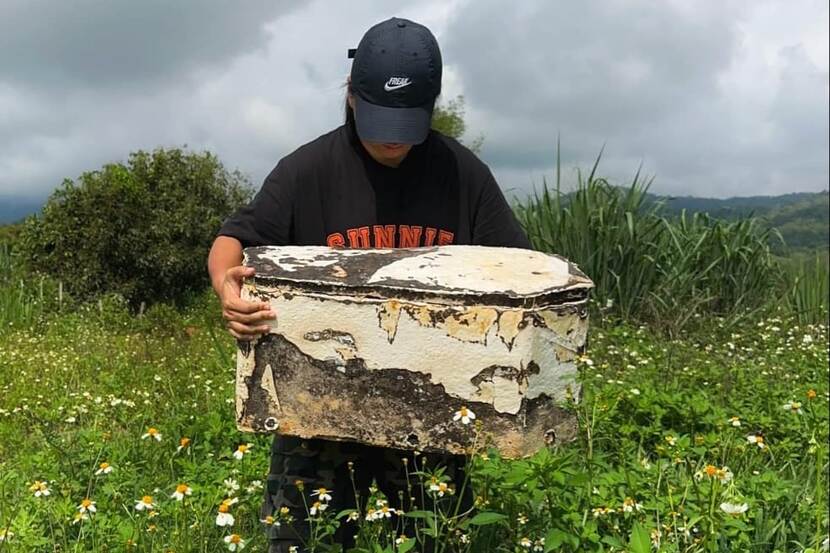
The initiative is comparable to the innovations in natural burial practices of the Dutch company Loop Biotech. While Loop Biotech focuses on eco-friendly mushroom coffins for human use, Dr. Jirawan developed a version for the pet market, emphasizing local materials, environmental impact, and community empowerment.
From rice straw and coconut shells to biochar and charcoal
Another initiative under development involves Green Eco Furnace, a Dutch company working with local partners in Northern and Southern Thailand to introduce clean-combustion technology. The company plans to install furnaces that convert rice straw and coconut shells into biochar and charcoal, offering a low-emission, value-added alternative to open burning. Preparations are in an advanced stage, with strong interest from local stakeholders.
However, although the company invested significantly in both the Chiang Mai (rice straw) and Southern (coconut) projects, the installation of furnaces in Thailand has not yet started. The project is still in the preparation phase, working through logistical and local coordination issues. No official pilots have been launched yet.
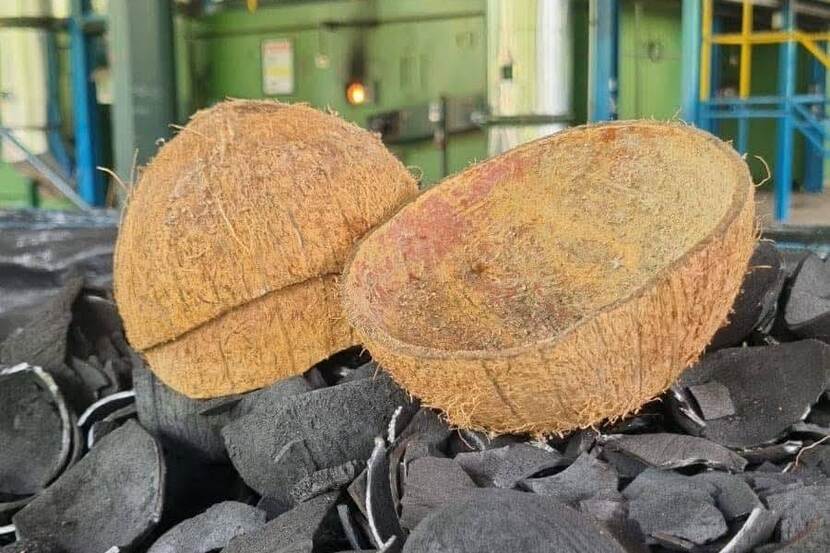
At the industrial level, companies like Mitr Phol Group, one of Asia’s leading sugar producers, are adopting circular practices. Farmers often burn sugarcane leaves before harvest to ease manual cutting, a major source of air pollution. To counter this, Mitr Phol buys sugarcane leaves from farmers, creating an incentive to collect rather than burn them. The biomass is then converted into renewable energy for the company’s operations. This shows how large businesses can adopt waste-to-value models that support climate goals and sustainable farming.
LAN team in Bangkok and the Friends of Thai Agriculture
As bio-based solutions gain traction, the Netherlands Agricultural Network (LAN) team at the Dutch Embassy in Bangkok has been building platforms for knowledge exchange and collaboration. In 2024, the LAN team co-hosted the Reduction of Post-Harvest Burning of Agricultural Residues conference, as part of the Friends of Thai Agriculture (FTA) initiative. FTA is an informal network of agricultural attachés from various embassies in Bangkok working together on agri-food initiatives.
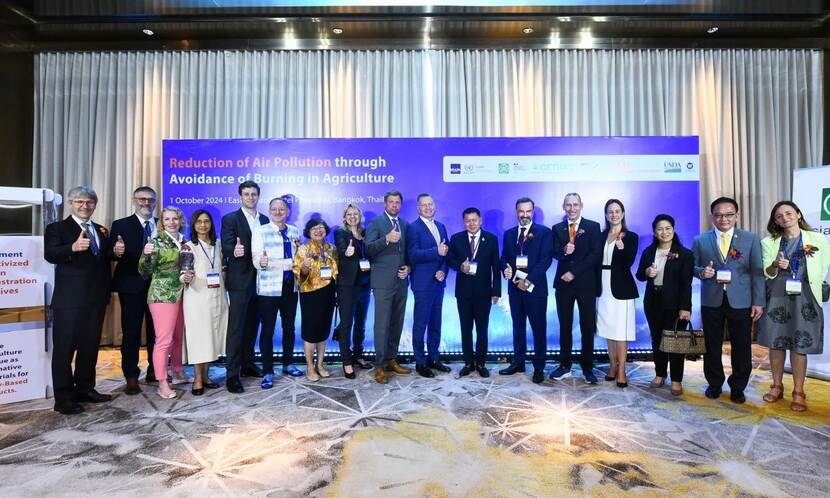
This conference brought together policymakers, international organizations, researchers, and private sector players to explore scalable alternatives to agricultural burning — acting as a catalyst for new initiatives.
One such initiative was Hack the Hills, a hackathon organized by Agrispark and partners, which challenged Thai and international innovators to develop practical solutions to reduce crop burning in upland areas. The event built on momentum from the conference and reflected growing interest in combining local and international technology, knowledge, and cross-sector collaboration to tackle the issue.
Building on this success, FTA hosted its second congress on 23 September 2025 in Bangkok, titled ‘Putting Out the Fire: Advancing Solutions for Sustainable Post-Harvest Biomass Utilization’. The event featured breakout sessions, including one by Tropenbos International on integrated landscape approaches and community-based fire management to reduce wildfire and haze risks.
‘Researchers, companies, and communities are recognizing that burning biomass is not just a risk, it is also a missed opportunity’
Bio-based future is clear
Thailand’s journey toward a circular bio-based economy is still in its early days, but the direction is clear. By turning agricultural waste into biochar, mycelium materials, renewable energy, feed ingredients, and other high-value bioproducts, innovators are converting environmental challenges into economic opportunities.
This transformation closely aligns with Dutch expertise in bioeconomy, circular design, and sustainable materials. There is significant potential for collaboration, where Thai innovation and Dutch know-how can scale solutions that are locally impactful and globally relevant. Besides Green Eco Furnace, FarmtoFuel is beginning to explore opportunities in Thailand (they are already active in Vietnam but have not yet found a local rice-husk pellet supplier). At the 2025 FTA congress, Solidaridad, an international civil society organization, delivered a joint presentation with Braskem. Their session highlighted how industrial partnerships, farmer engagement, and bio-based value chains can drive sustainable innovation in Thailand, based on the project they are now implementing together.
From burning fields to building new industries, Thailand’s waste-to-value journey is one of transformation. The LAN team in Bangkok is proud to support these efforts, helping ensure that Thailand’s bio-based future is not just an environmental necessity but also a foundation for economic growth and community empowerment.
Plans for a 2026 edition of the FTA congress have not yet been confirmed. The continuation of the congress will depend on future priorities and opportunities, but with the positive momentum of this year’s edition, the network and its partners – including embassies and organizations – are considering how best to build on this success.
More information
Would you like more information about Thailand’s journey toward a bio-based economy? You can visit the country page of Thailand at the website Agroberichtenbuitenland.nl of the Dutch Ministry of Agriculture, Fisheries, Food Security and Nature. You can also send an e-mail to the LAN team at the Dutch Embassy in Bangkok: ban-lvvn@minbuza.nl.
